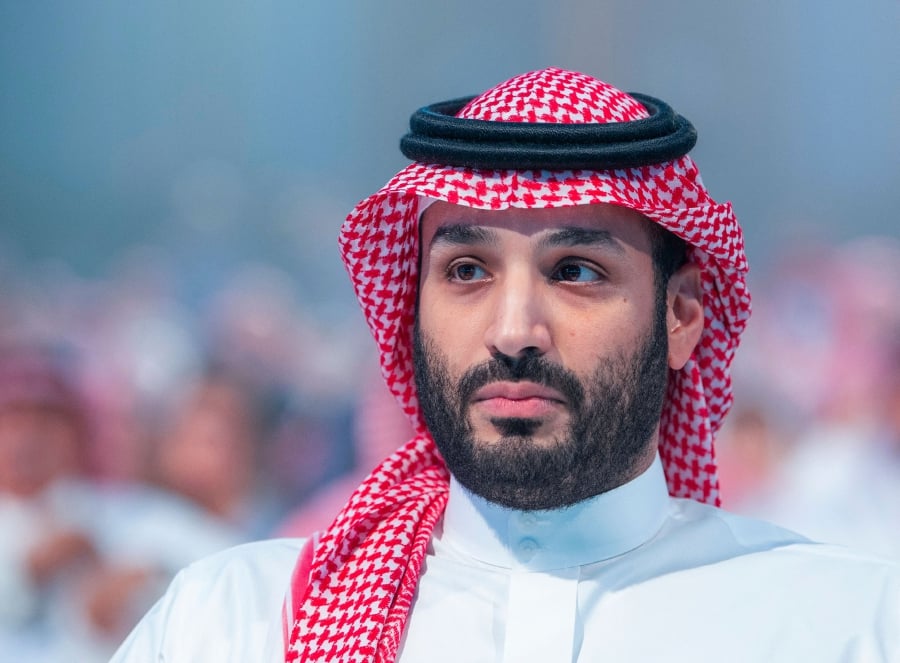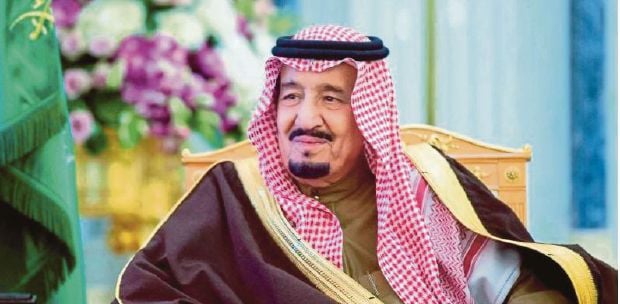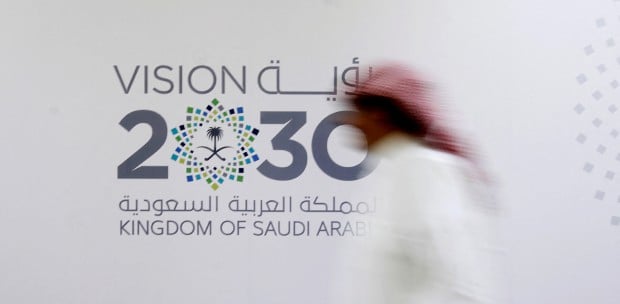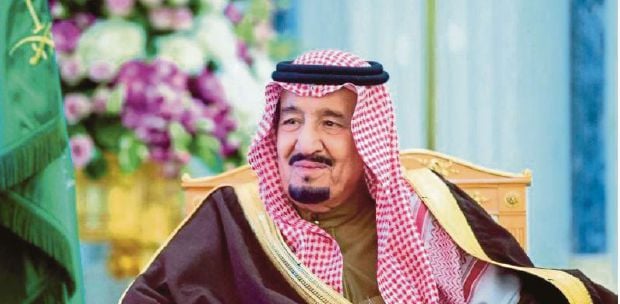DUBAI: Saudi Crown Prince Mohammed bin Salman has shaken up his conservative kingdom with head-spinning reforms while quashing any threats to his status as de facto ruler -- a role he assumed five years ago.
The hard-charging heir has earned plaudits for allowing women to drive and envisioning an economy less dependent on oil, but he has also drawn widespread revulsion over the gruesome murder of journalist Jamal Khashoggi and other state abuses.
A towering man with a full-face beard, a deep growling voice and seemingly boundless energy, Prince Mohammed is known for his super-sized ambitions, from building the futuristic megacity known as NEOM to waging the seven-year-old war in neighbouring Yemen.
The brash 36-year-old, said to have a fondness for fast food and the "Call of Duty" video games, is also fabulously rich, owning a $500 million yacht, a French chateau and, according to officially denied reports, a $450 million Leonardo da Vinci painting.
Unlike other Saudi princes with British accents, sharp suits and Oxford degrees, he has embraced the country's Bedouin roots, usually donning a traditional robe and sandals, and treating friends and relatives to lavish roast lamb meals in luxury desert camps.
Having plotted his path to power from relative obscurity, he has overseen the biggest transformation in the modern history of Saudi Arabia, the world's top crude oil exporter and host of Islam's two holiest sites, Mecca and Medina.
Under his rule, the Islamic religious police have been de-fanged, cinemas have reopened, foreign tourists have been welcomed, and Saudi Arabia has staged a film festival, operas, a Formula One Grand Prix, professional wrestling and a huge rave festival.
Yet he has also jailed critics and, in a sweeping purge of the nation's elite, detained and threatened some 200 princes and businessmen in Riyadh's Ritz-Carlton hotel in a 2017 anti-corruption crackdown that tightened his grip on power.
His image was most severely tarnished by the brutal murder and dismemberment of Khashoggi inside the kingdom's Istanbul consulate in October 2018, which prompted an international outcry despite Riyadh's insistence that rogue agents carried out the killing.
"MBS is a hugely divisive character, praised by supporters as a long-awaited game-changer in a region aching for it and dismissed by foes as a brutal dictator in the making," wrote Ben Hubbard in "MBS: The Rise to Power of Mohammed bin Salman".
"He is determined to give Saudis a shining, prosperous future and exercises an unflinching willingness to crush his foes. Combined in different doses, those attributes will likely guide his actions far into the future."
Prince Mohammed was born on August 31, 1985, as one of the hundreds of grandchildren of the country's founder, King Abdulaziz Ibn Saud. He grew up in a Riyadh palace with his mother, Fahda, one of his father's four wives, and his five brothers.
"As the sixth son of the 25th son of the founding king, there was little reason to expect that he would rise to prominence," wrote Hubbard. "And for most of his life, few people did."
He earned a law degree from Riyadh's King Saud University but never studied abroad, and soon worked as a special adviser to his father, the then-Riyadh governor.
When King Salman assumed the throne in early 2015, he named Prince Mohammed as defence minister.
Soon the young man also coordinated economic policy, oversaw the state oil company Saudi Aramco and supervised the kingdom's military intervention in Yemen.
Within a year, he held so many portfolios that diplomats called him "Mr Everything".
The prince -- now a father of three boys and two girls, who unlike other Saudi royals has only one wife -- reportedly worked 16-hour days and drew inspiration from Winston Churchill and Sun Tzu's "The Art of War".





